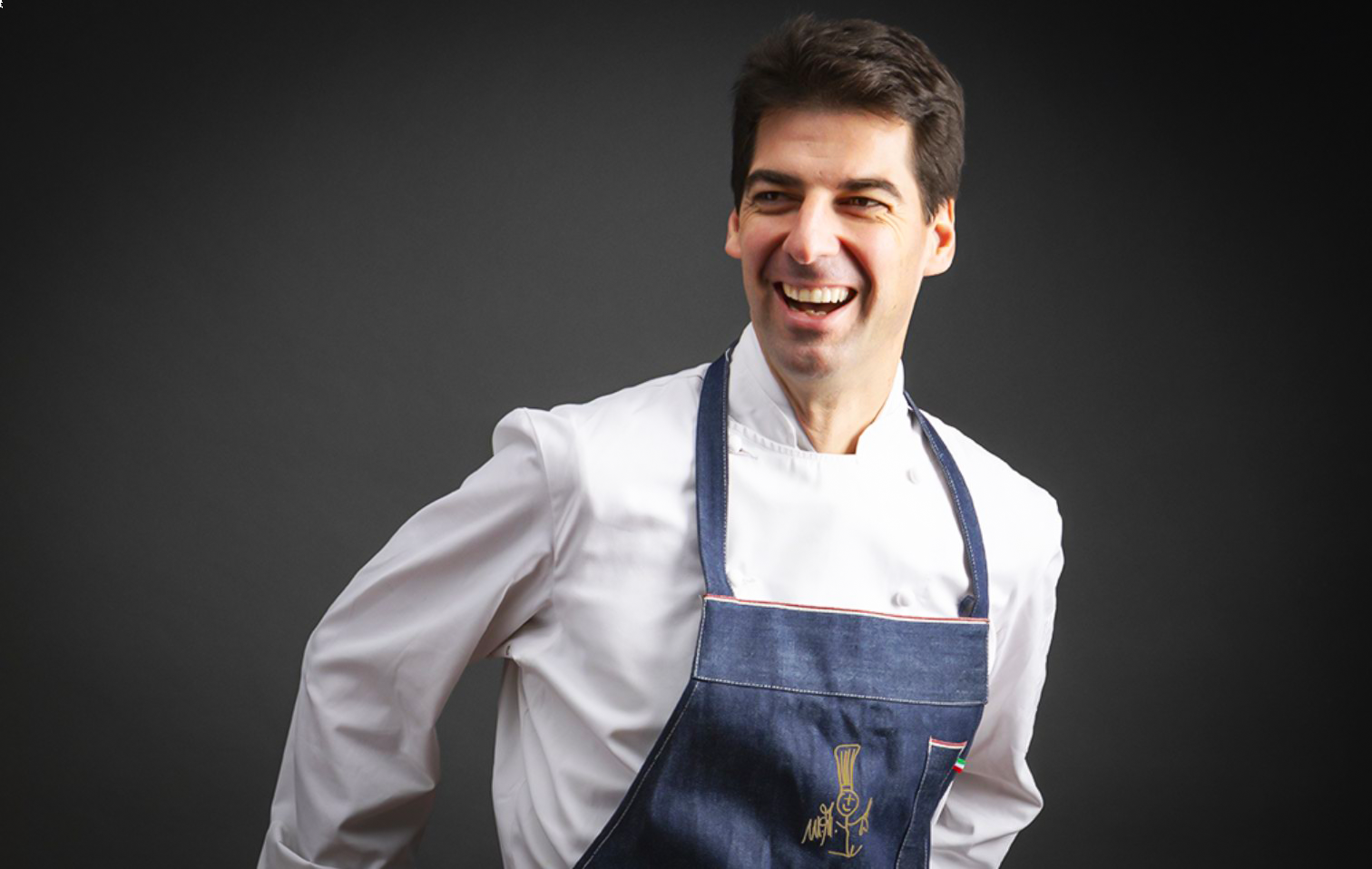For over twenty years, Le Calandre has articulated the inexpressible through the limitless tools of pure cuisine, conveying universal emotions with ever-deeper and more focused layers each year.
The Restaurant
It seems almost unbelievable, yet Massimiliano Alajmo, the youngest chef ever to earn three Michelin stars, has just turned fifty. His face still bears the look of an eternal youth, and his cooking remains as vibrant as ever, though in recent years it has revealed an unexpected depth.
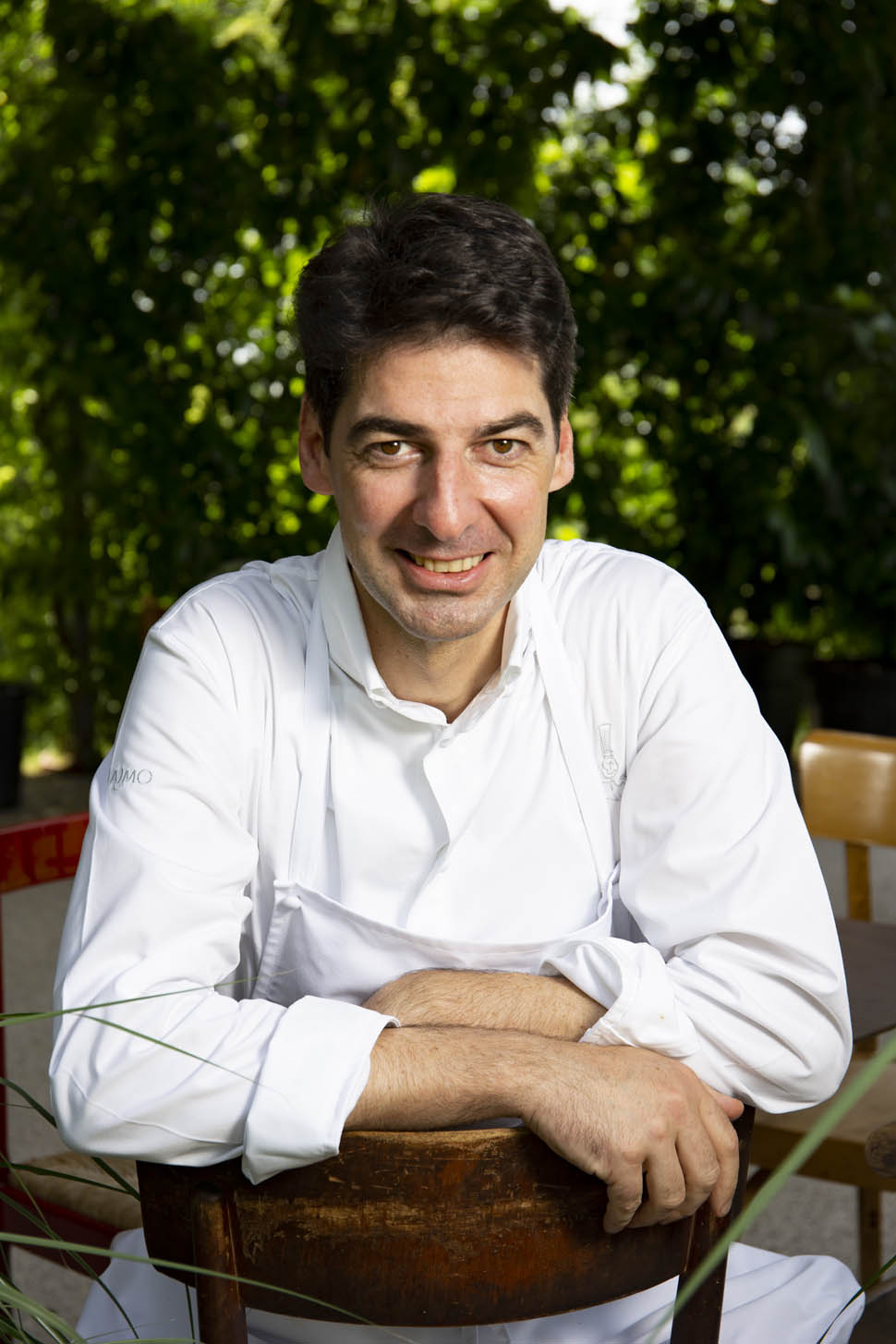
For the past two decades, Massimiliano Alajmo has consistently followed the same culinary path with rare coherence. Even the ingredients have largely remained the same, reappearing in a display of virtuosic variations on themes like water and aromas.
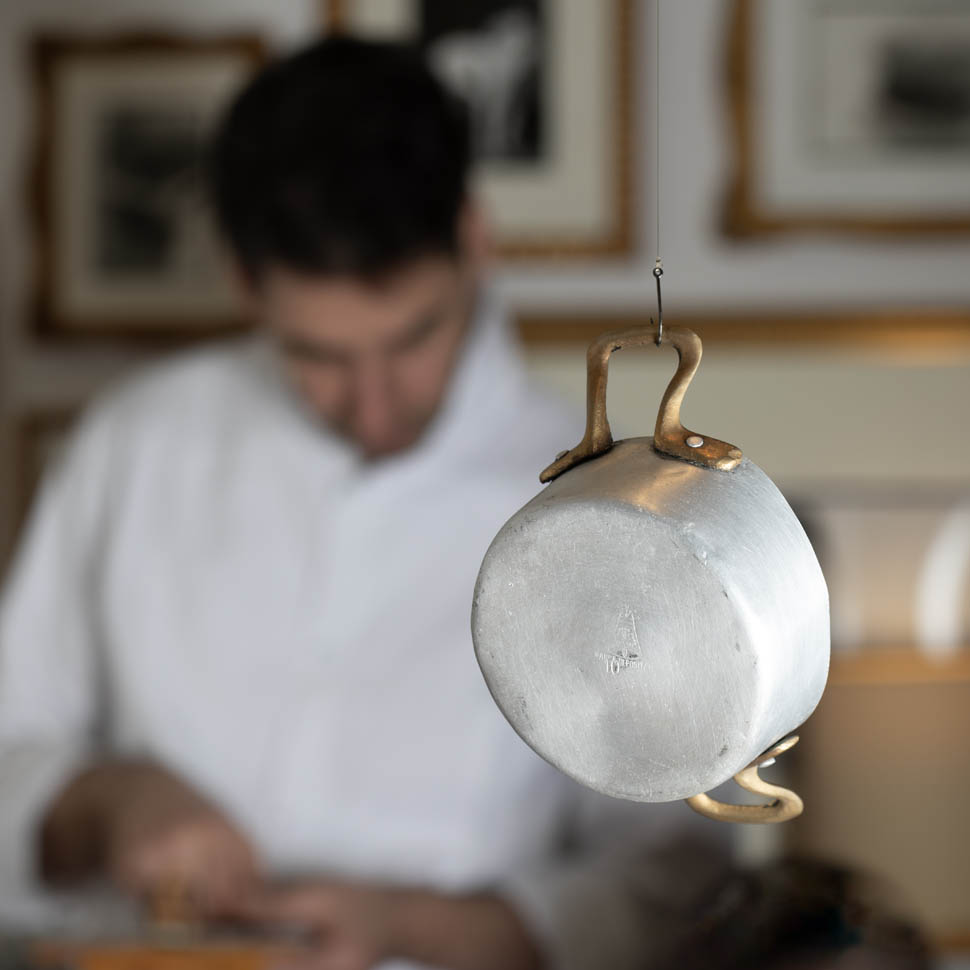
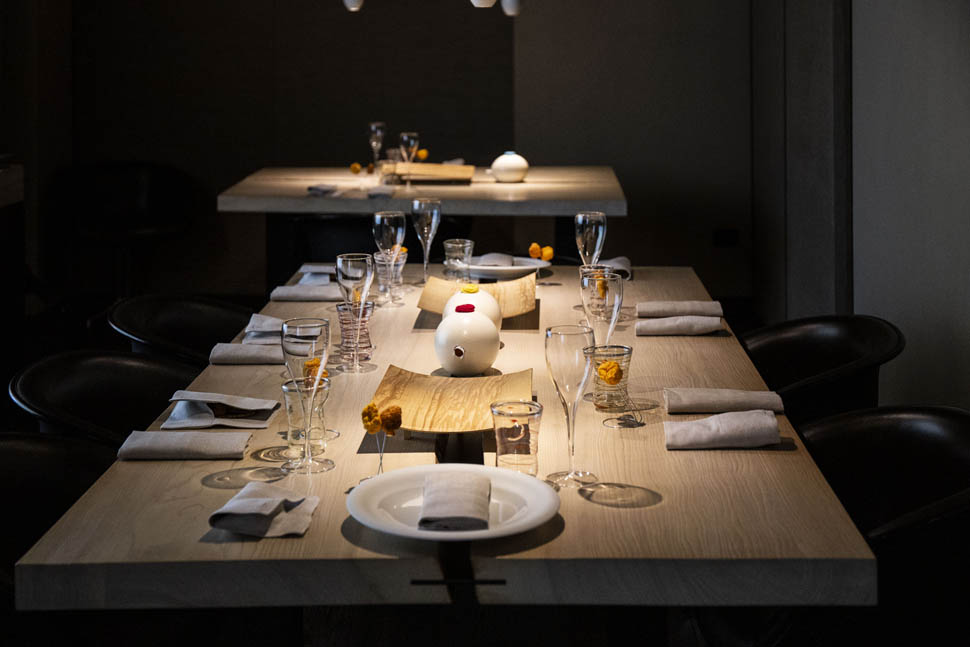
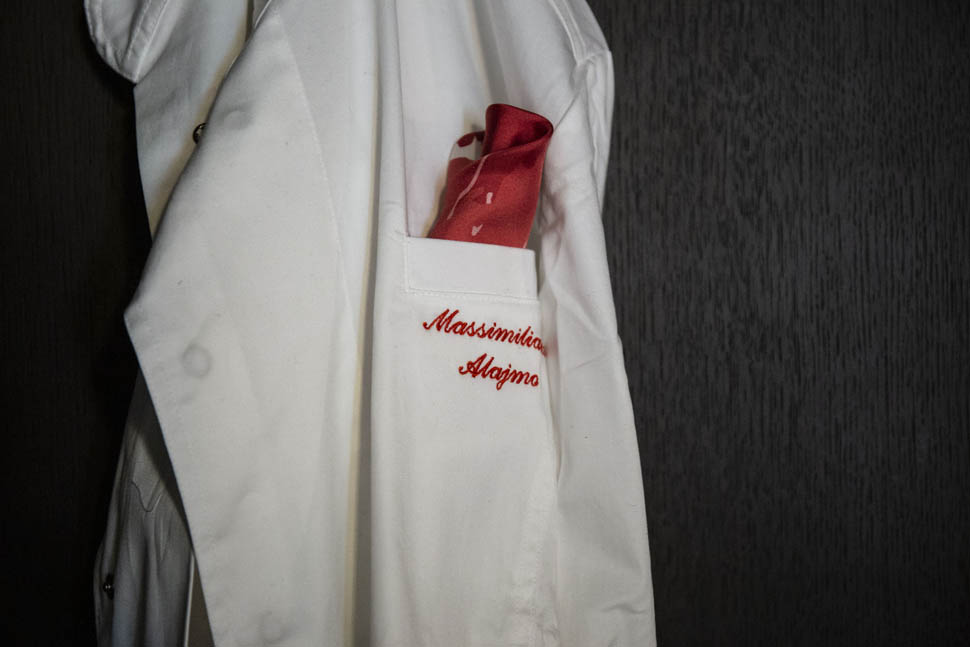
As Massimiliano Alajmo's techniques become increasingly precise and deliberate, even bordering on molecular gastronomy, his use of conceptual tools like neurogastronomy helps enhance the message of his dishes. Indeed, the cuisine at Le Calandre is designed for multiple levels of interpretation: it can be appreciated as simply delicious food, but also much more. Alajmo often hints at deeper meanings and connections, particularly in recent years, introducing subtle cues that invite diners to explore beyond taste alone. This layered approach ensures that each dish offers not just culinary delight but a narrative that resonates on various sensory and intellectual levels.
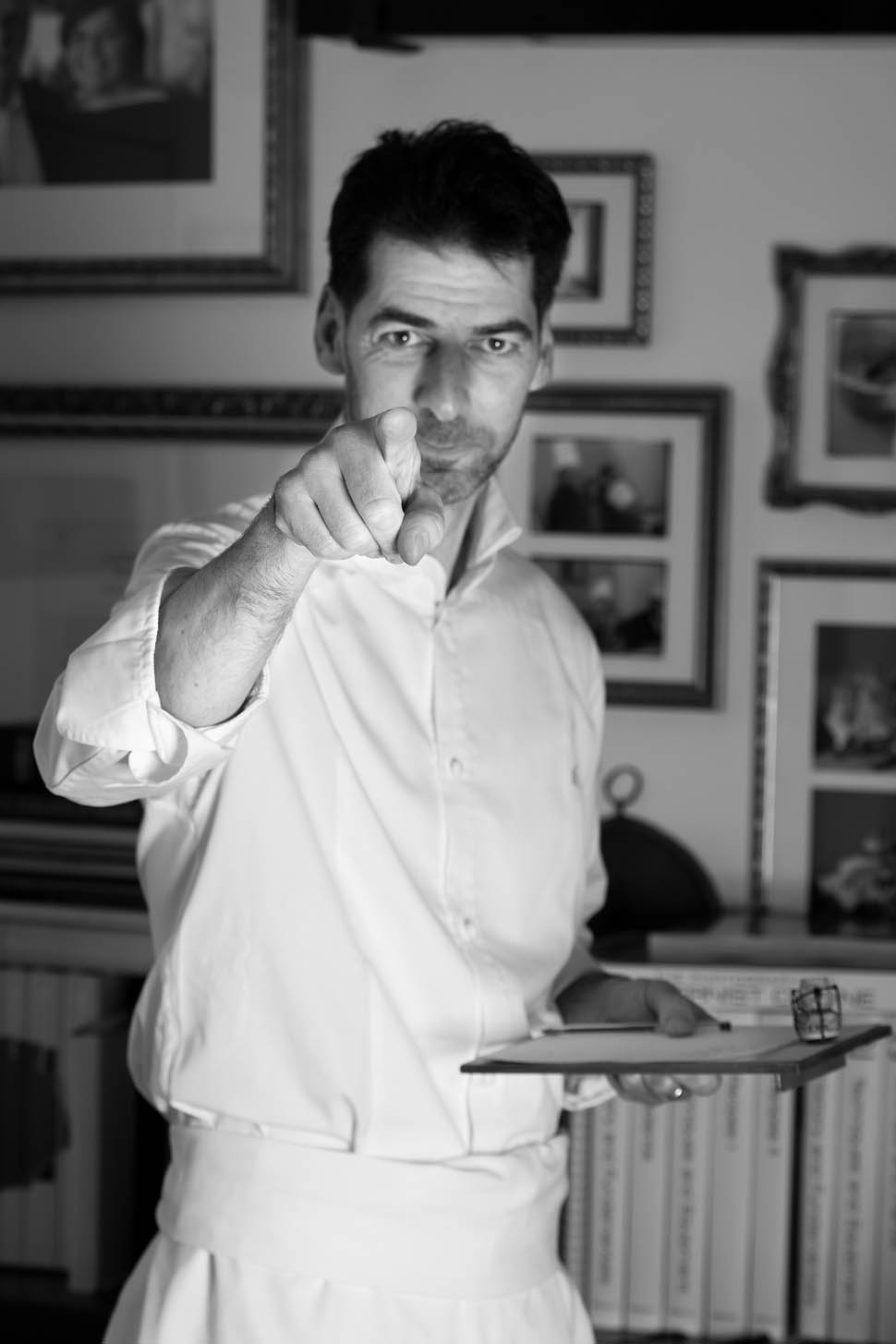
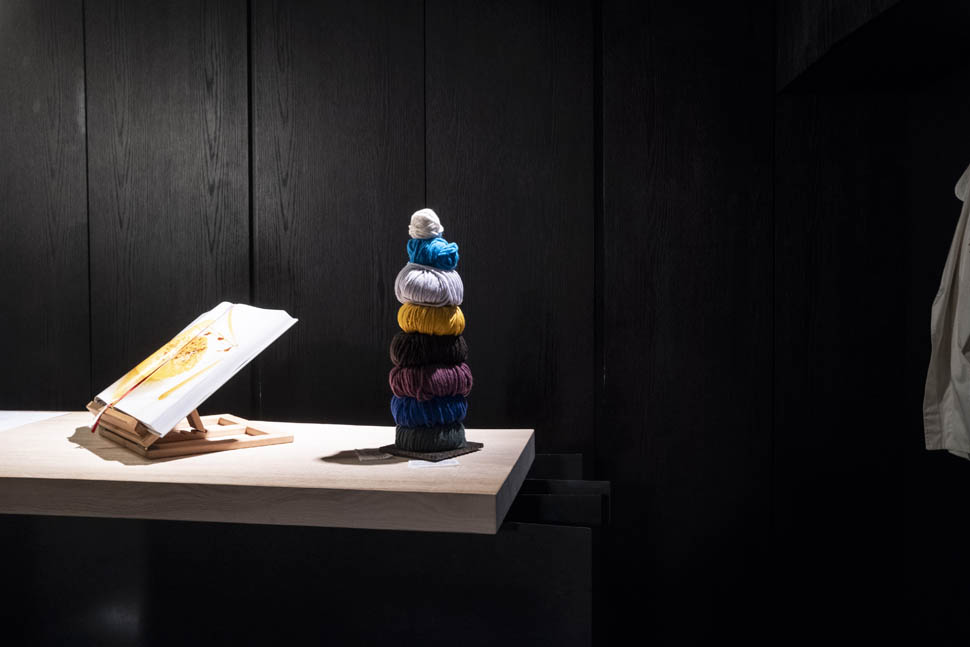
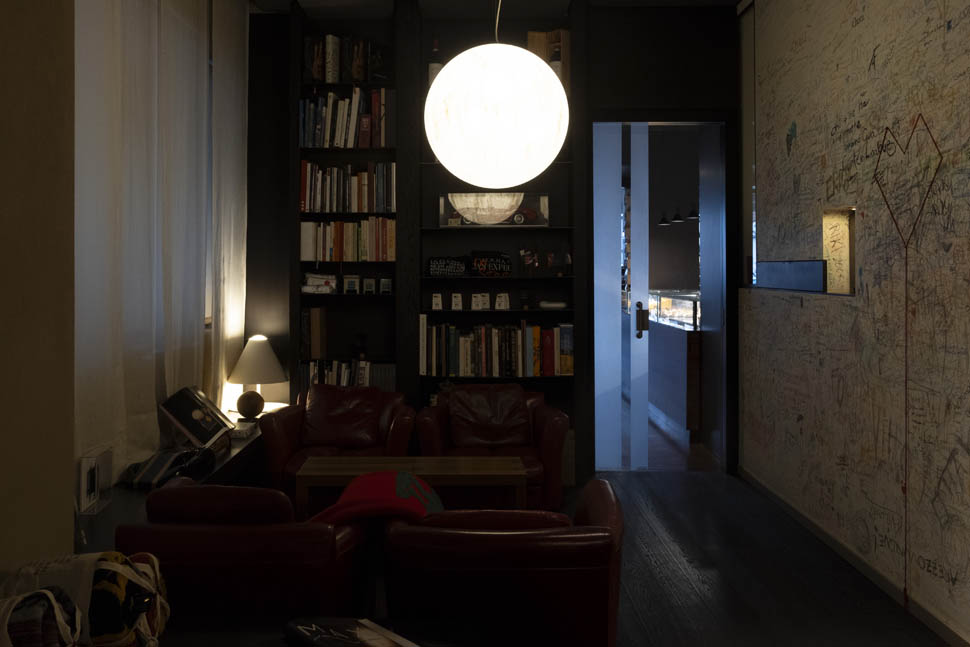
Massimiliano Alajmo's creative exploration in the kitchen extends to enhancing the sensory experience of dining, embracing both new culinary techniques and more advanced conceptual tools. The current focus is on "crispiness," which for Alajmo encompasses high-tech creations such as hyper-technical wafers, but also includes various types of frying. He expresses a personal commitment to exploring this theme deeply, indicating a willingness to pioneer when existing culinary resources fall short.
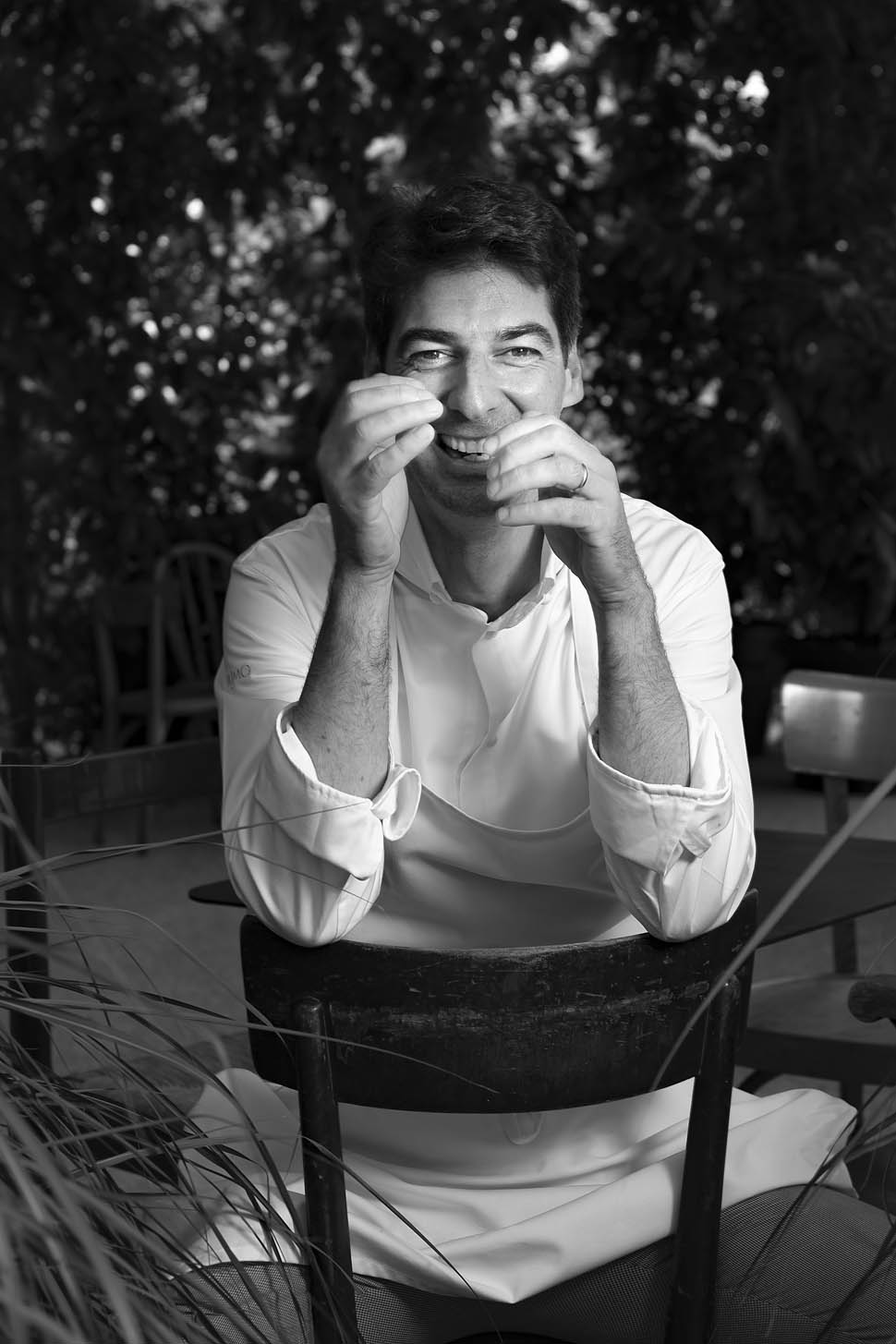
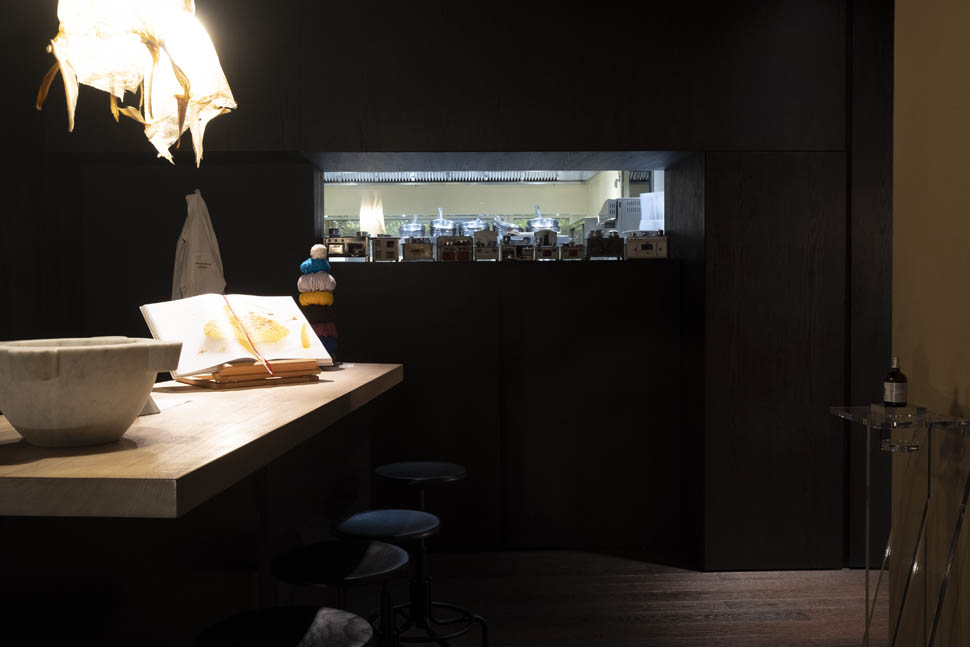
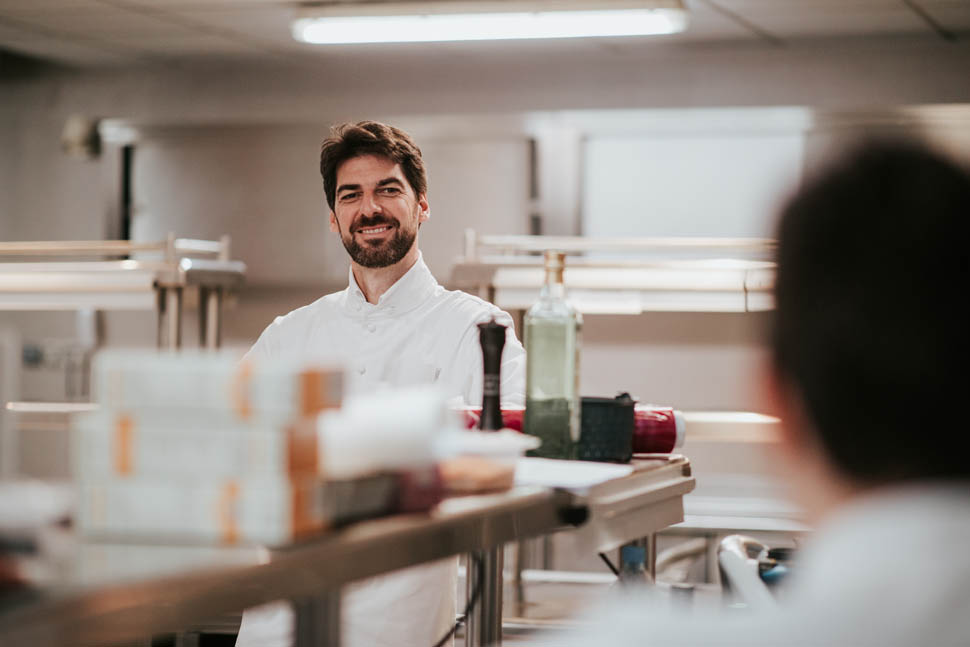
His dishes, beginning with appetizers like a bubble of tapioca and kuzu around eggplant puree with sesame, basil, and spices, are accompanied by creamy salt cod on a wafer and quail egg with anchovy from Crucole and ponzu sauce. Each dish reflects his ongoing exploration of vegetable oils and seasonal reductions that contribute to a dynamic interplay of aromas, vegetable perceptions, and vibrant colors.
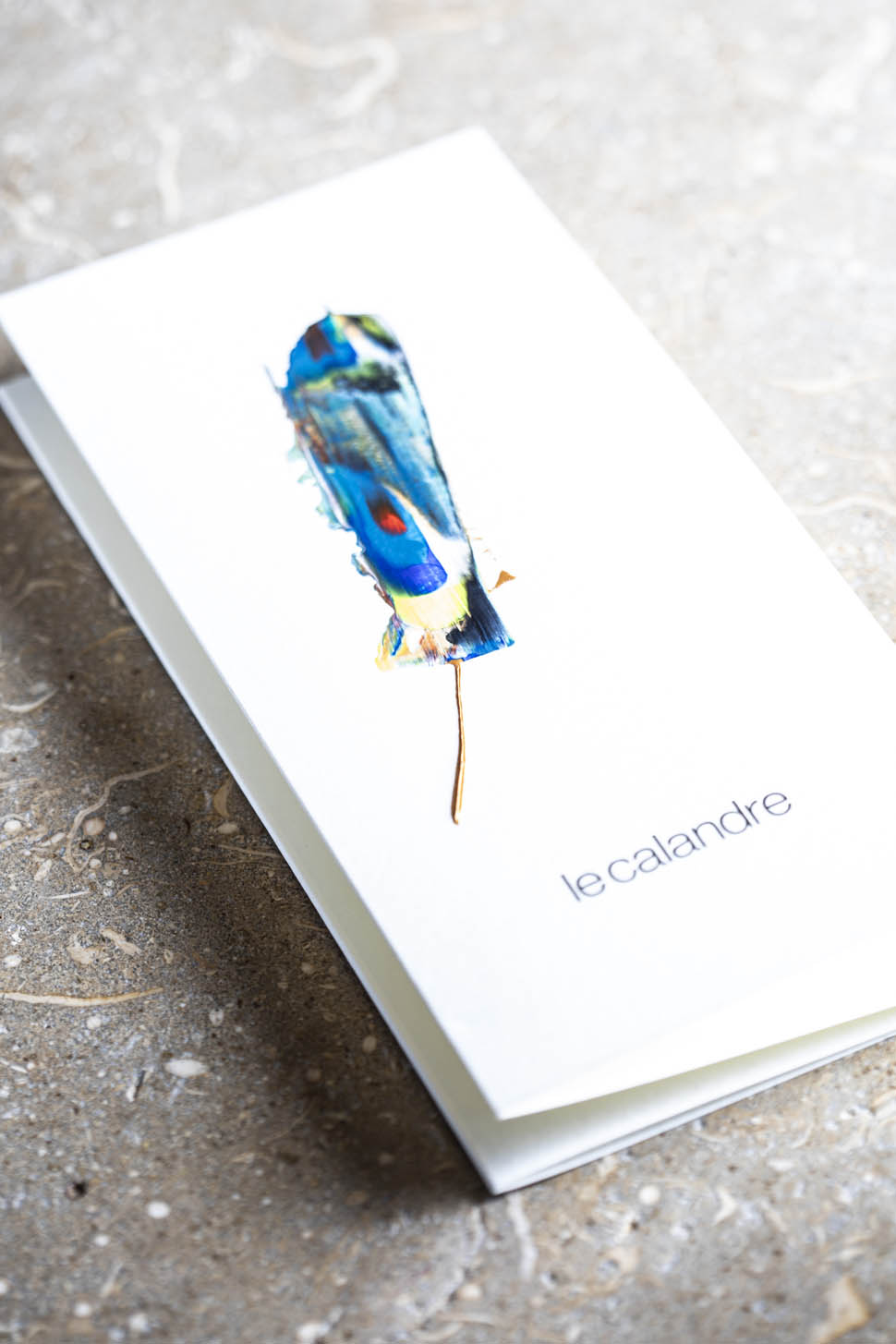
The Dishes
The vegetable entry is a celebration of flavor, composed of water elements, featuring yellow and red tomato sorbet, slices of beetroot, zucchini, green beans, raw white and green asparagus in foam, mozzarella filled with yellow tomato and Tabasco, fava bean puree, and a bread dip with oregano and raw onion. This intricate presentation showcases a miraculous interplay of textures and temperatures, highlighting Alajmo's dedication to culinary innovation.
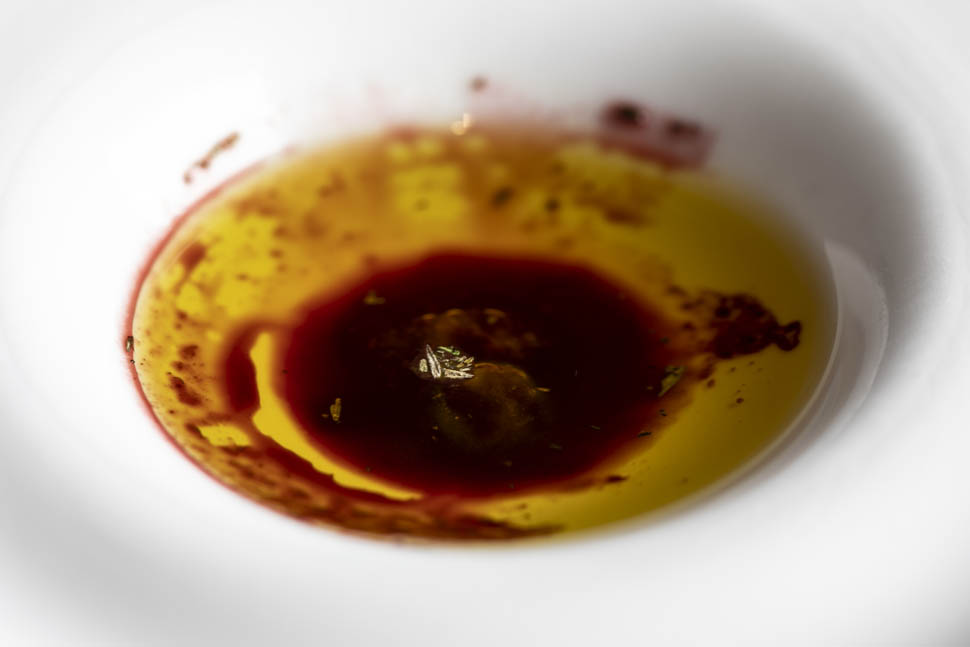
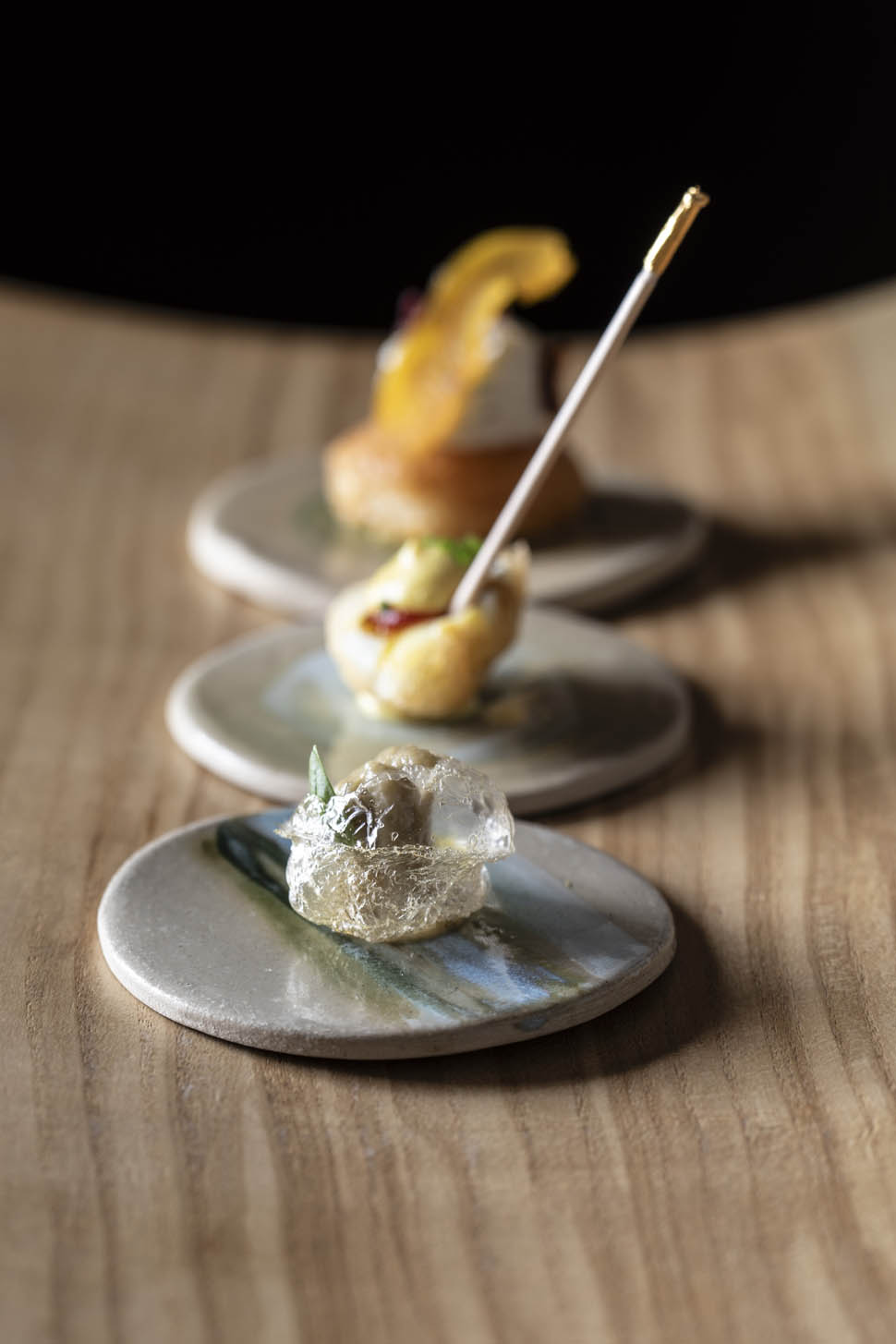
The dish "Bob Spoon" is a poignant appetizer dedicated to Massimiliano Alajmo's late friend Bob Noto. It features a split spoon that serves dual flavors: one side holds a mozzarella with Moresca sauce, and the other, a puree enriched with fig oil, caviar, and coriander. This creation symbolizes a balance between Spain—Bob Noto's chosen home—and classic flavors, blending analytical precision with playful elements. The dish subtly introduces themes of crisis, with a nod to the elegiac spirit of "Spoon River," reflecting a thoughtful and emotionally resonant culinary expression.
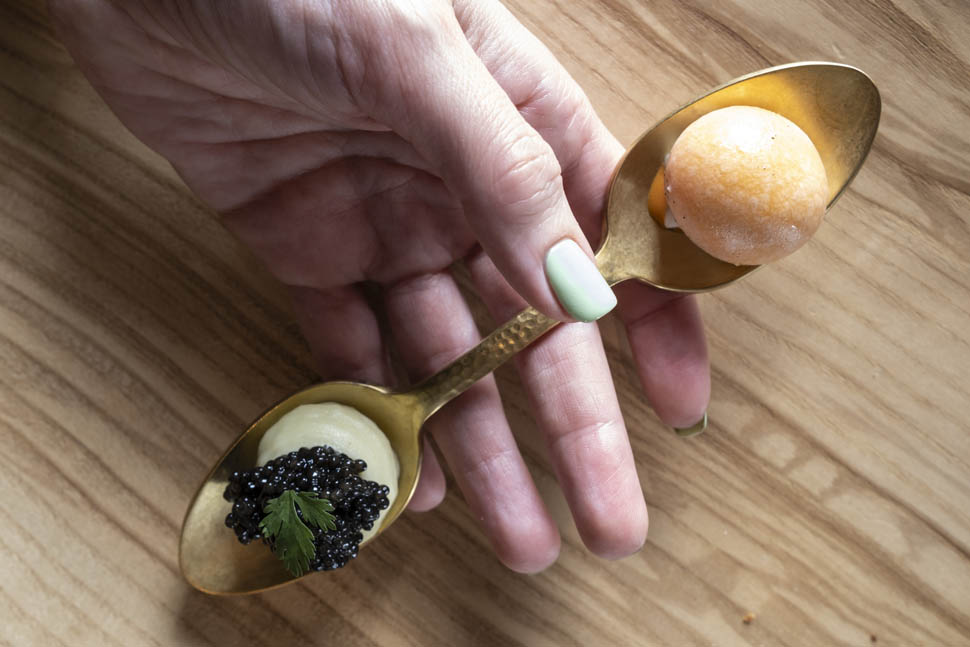
The crispiness returns prominently in Massimiliano Alajmo's dish featuring fried soft-shell crab nestled between seaweed-flavored galette sandwiches, which effectively doubles the textures. Accompanying this is a delicate salad dressed in oyster sauce with raw red shrimp, enhancing the mixture; on the side, a dip made from guacamole enriched with green pepper, mango, papaya, and avocado, along with coriander and chives, adding a burst of vibrant flavors and colors to the dish. This combination showcases Alajmo's ability to merge diverse ingredients and textures, creating a harmonious and inventive eating experience.
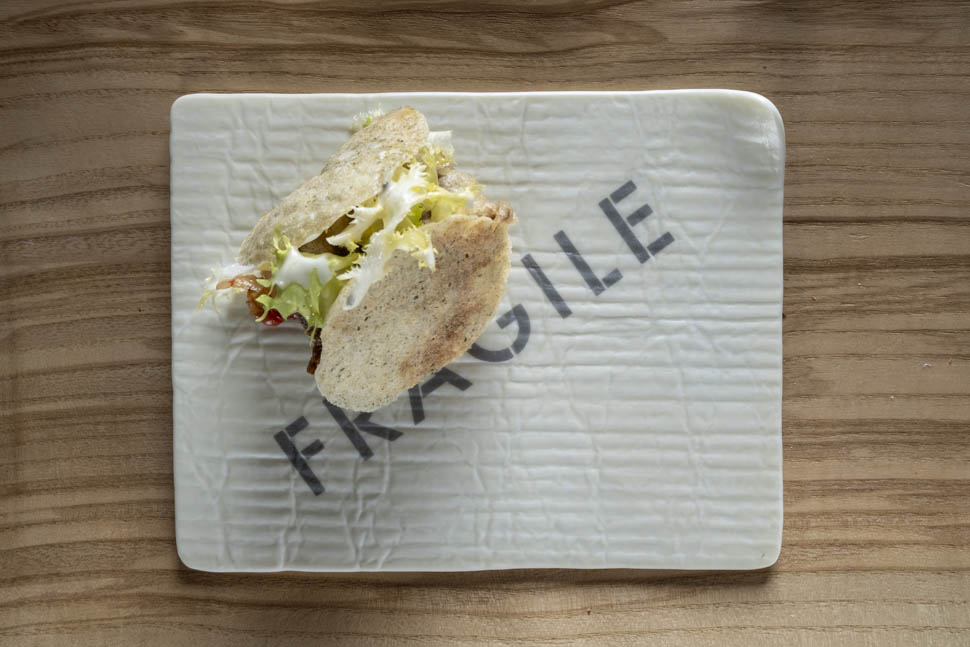
In the ironic note labeled "fragile," the Benjamin sleeve is momentarily left behind, assured to be retrieved once the overall design of the meal is grasped. This element suggests a pause, a moment of reflection within the culinary narrative, emphasizing the thoughtfulness and depth that go into every component of the dining experience.
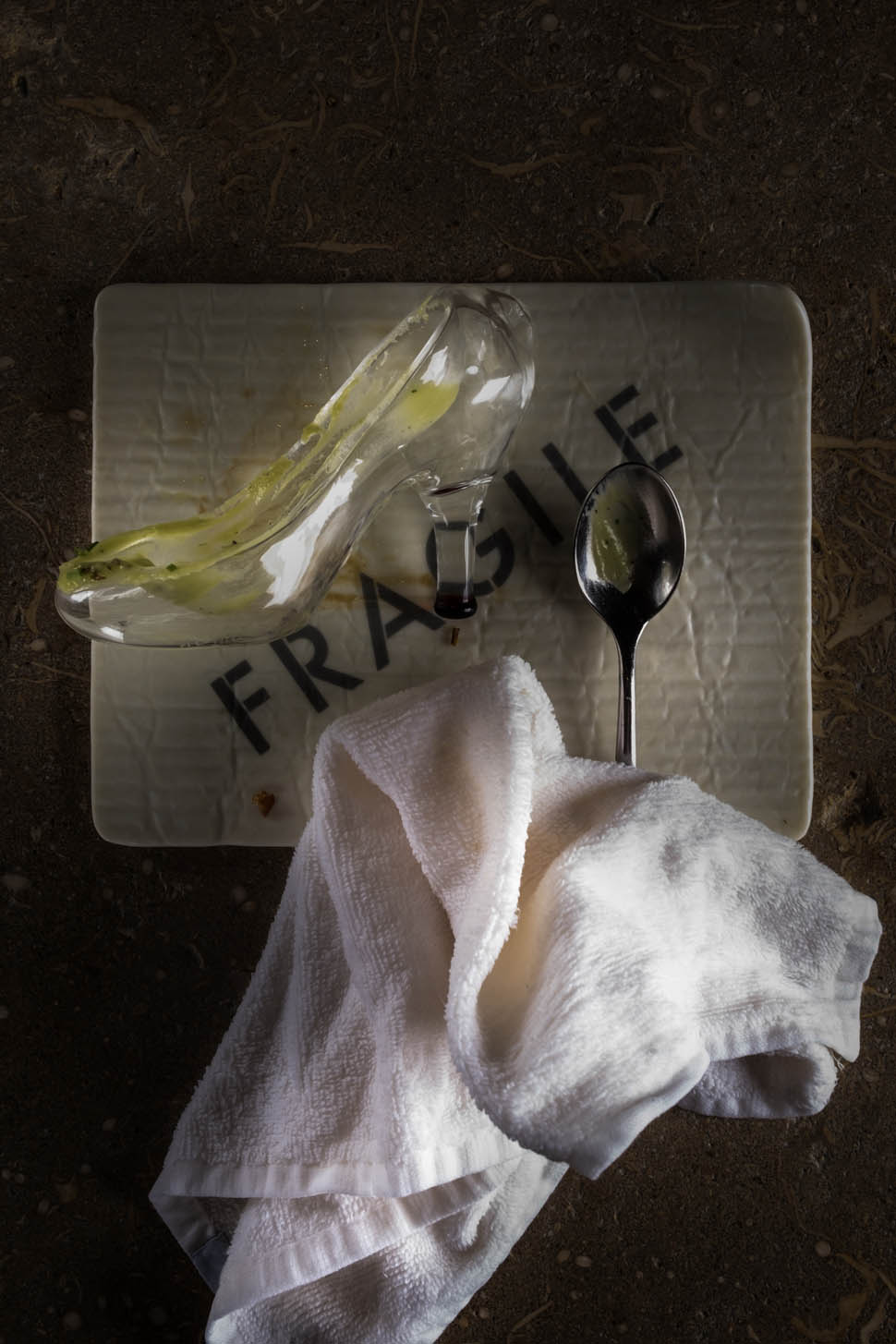
The dish transitions with an Asian-inspired tortello filled with dashi that carries Italian undertones, accompanied by an almond cream made with water, and topped with mackerel that's been grilled and glazed in an Eastern style. This fusion reflects a sophisticated melding of flavors, bridging Asian techniques with Italian culinary philosophy.
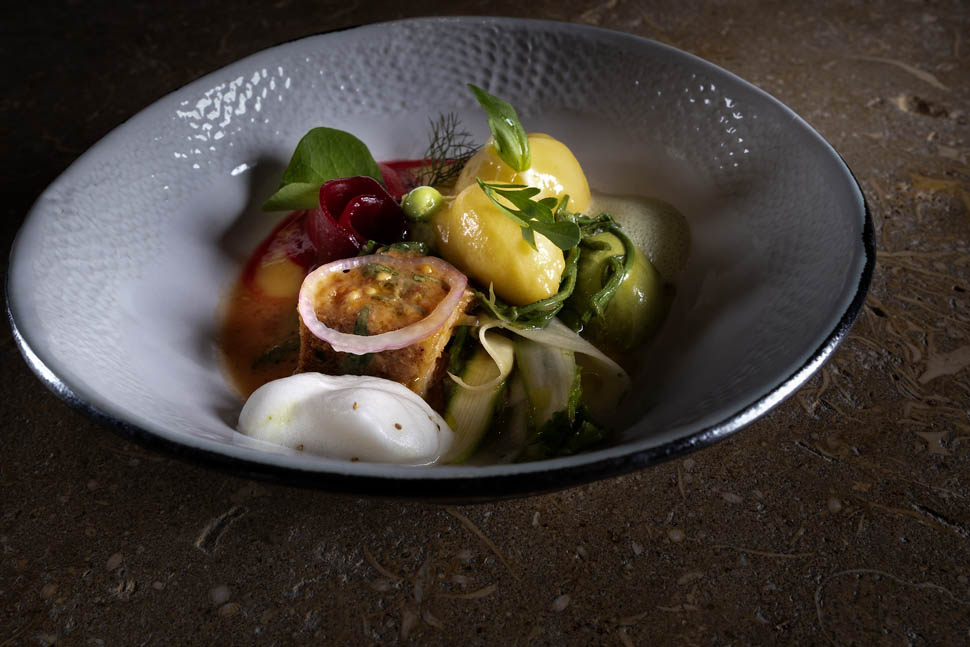
Before the conceptual masterpiece of the meal: "Suono n’uovo." Alajmo starts with the literal interpretation of "whole eggs," a term used in old recipe books referring to pasta dough. He incorporates a part of the eggshell in powder form, creating a strikingly alien sensation: in the mouth, it feels as though one is listening to the sound of their own organs while chewing, a form of vaguely sinister sensory introspection. This is lightened by a dressing of smoked celeriac butter, herb powder, a light Castelmagno cheese sauce, and accompanied by a double broth of smoked meat, scented with incense.
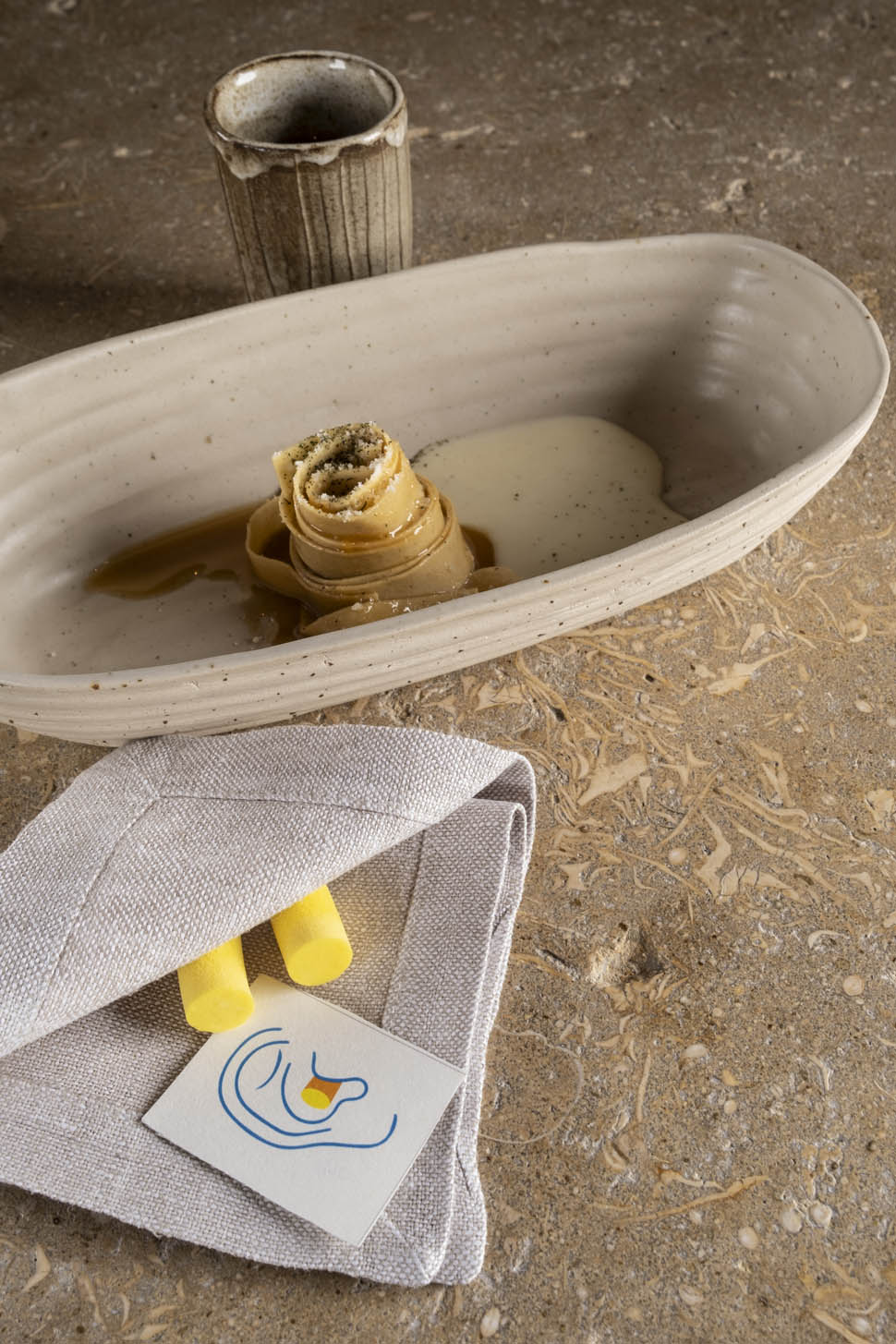
"Passi d’oro" is another masterpiece from Massimiliano Alajmo, a creative rendition of saffron and licorice risotto inspired by Roberto Barni's artwork displayed outside the Uffizi Gallery. This dish commemorates the Georgofili bombing. The risotto captures a complex mood through its gastronomic chiaroscuro of dark and vibrant flavors, vividly portraying emotions through culinary art alone. The dish is ingeniously paired with an empty glass sprayed with a saffron and licorice aroma, intensifying the dining experience by engaging the olfactory senses directly linked to emotions. To complement this, sommelier Matteo Bernardi presents an Antico Gregori Contini wine, echoing the transformative and redemptive themes of the dish’s flavor narrative.
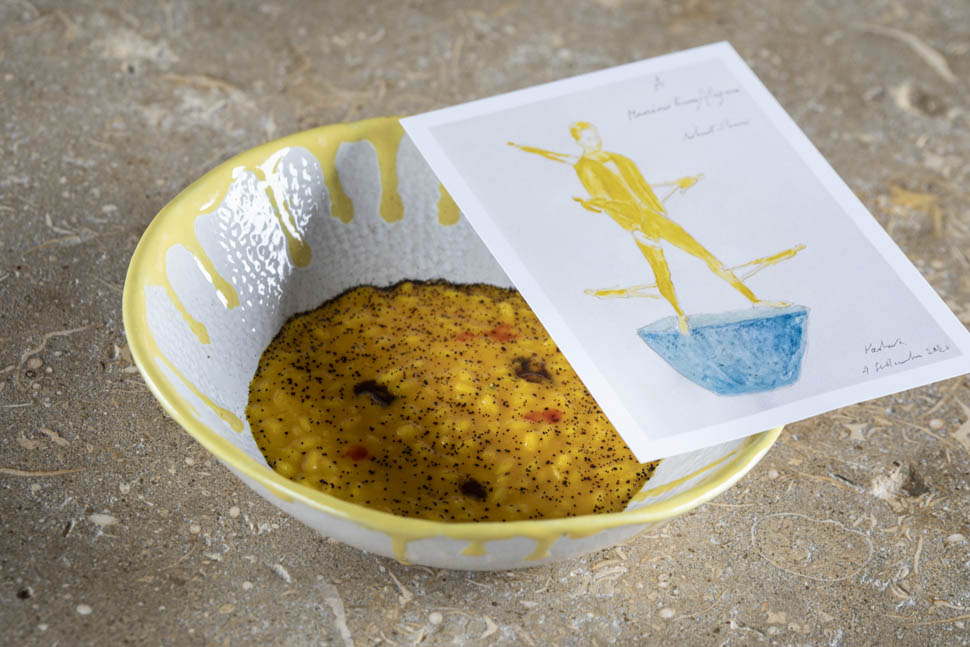
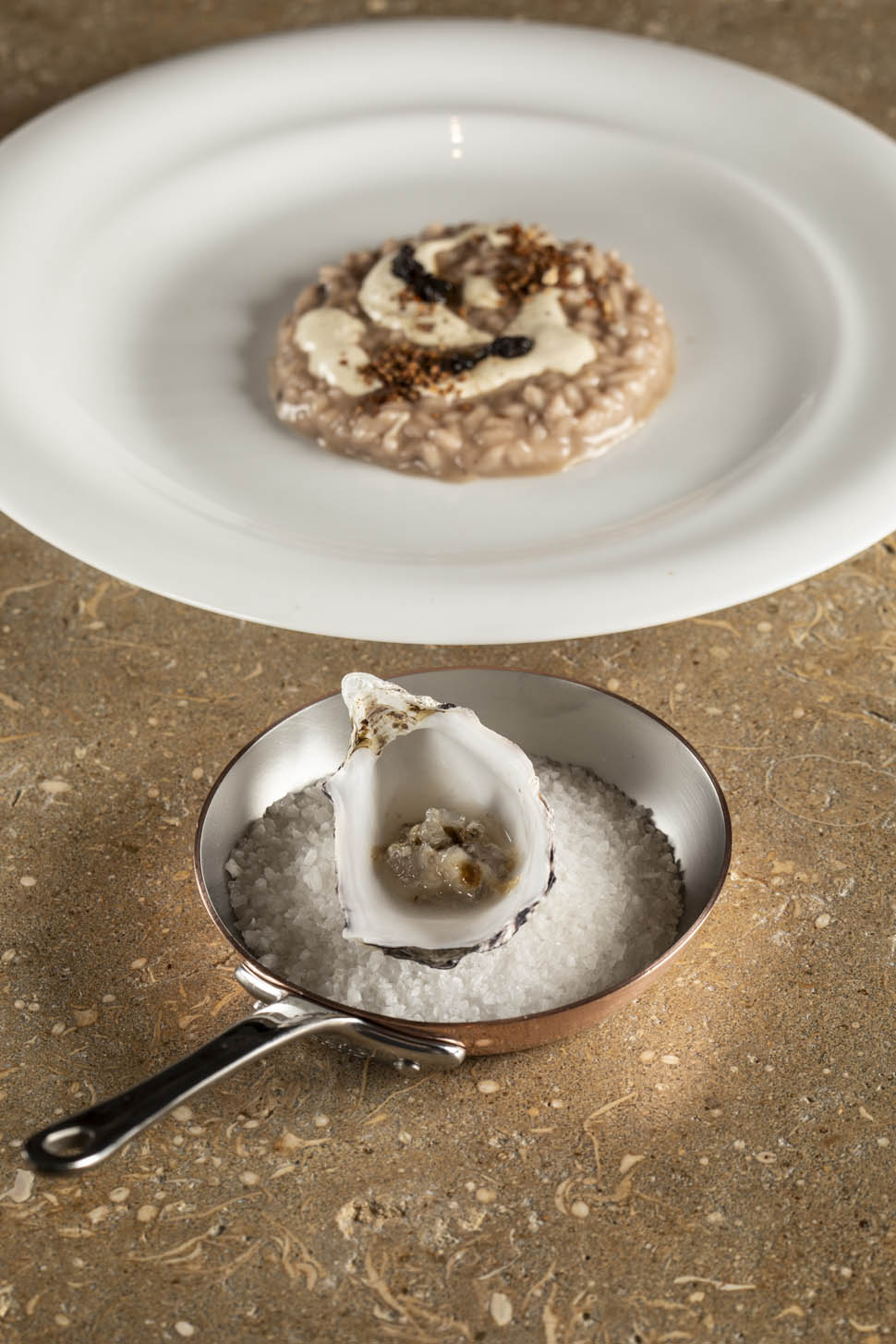
The dish "Fried turbot with sweet and sour sauce and a mille-feuille-style salad emulsified with turbot eggs" illustratively explains the difference between "crunchy" and "crispy" textures in culinary terms. "Crunchy," as exemplified by the batter, tends to be dry, whereas "crispy" releases moisture when bitten, flooding the palate with flavor. This distinction is not just a matter of texture but also enhances the overall sensory experience of the dish, providing an instructive contrast that is both educational and delightful to the senses.
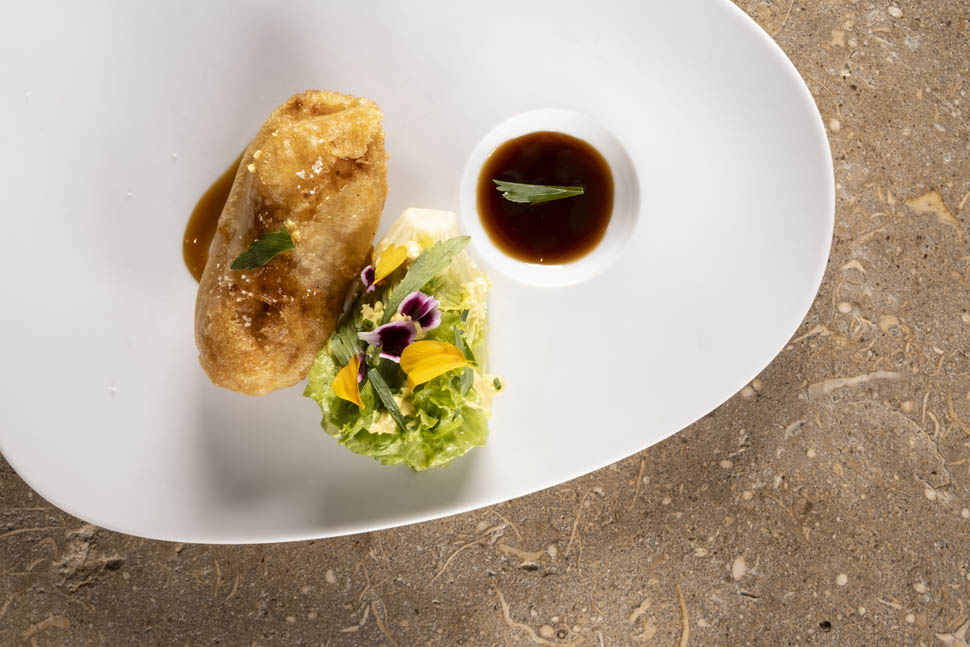
Before the main course, the dish "osso alla sambuca" presents a contrasting array of textures and flavors, bridging the worlds of land and sea. This is achieved through an unexpected harmony between sea urchins and caviar. Following this, the dish transitions to pigeon served with kumquat marmalade, semi-candied alongside a pâté made from the bird's organs, complemented by a black wafer.
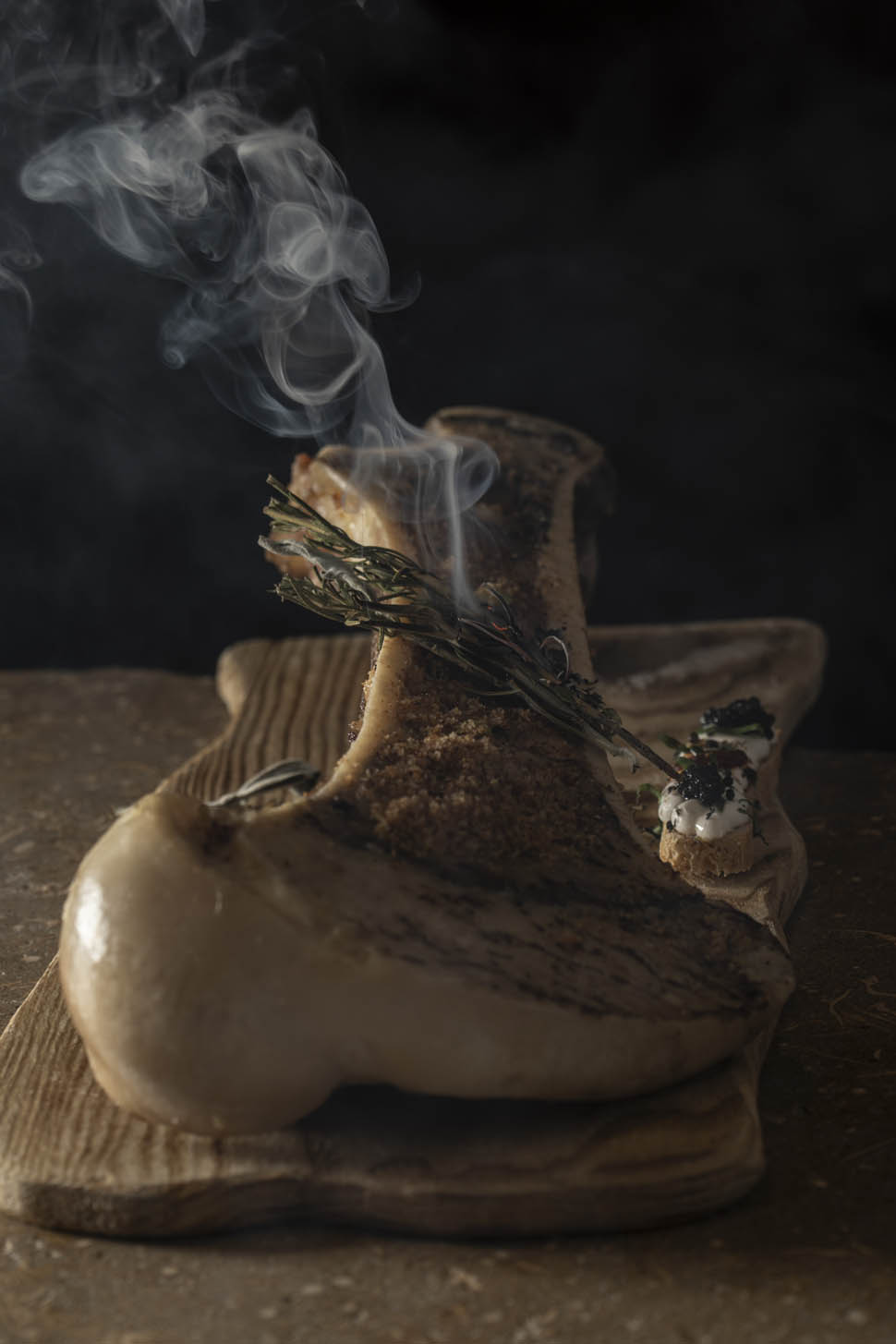
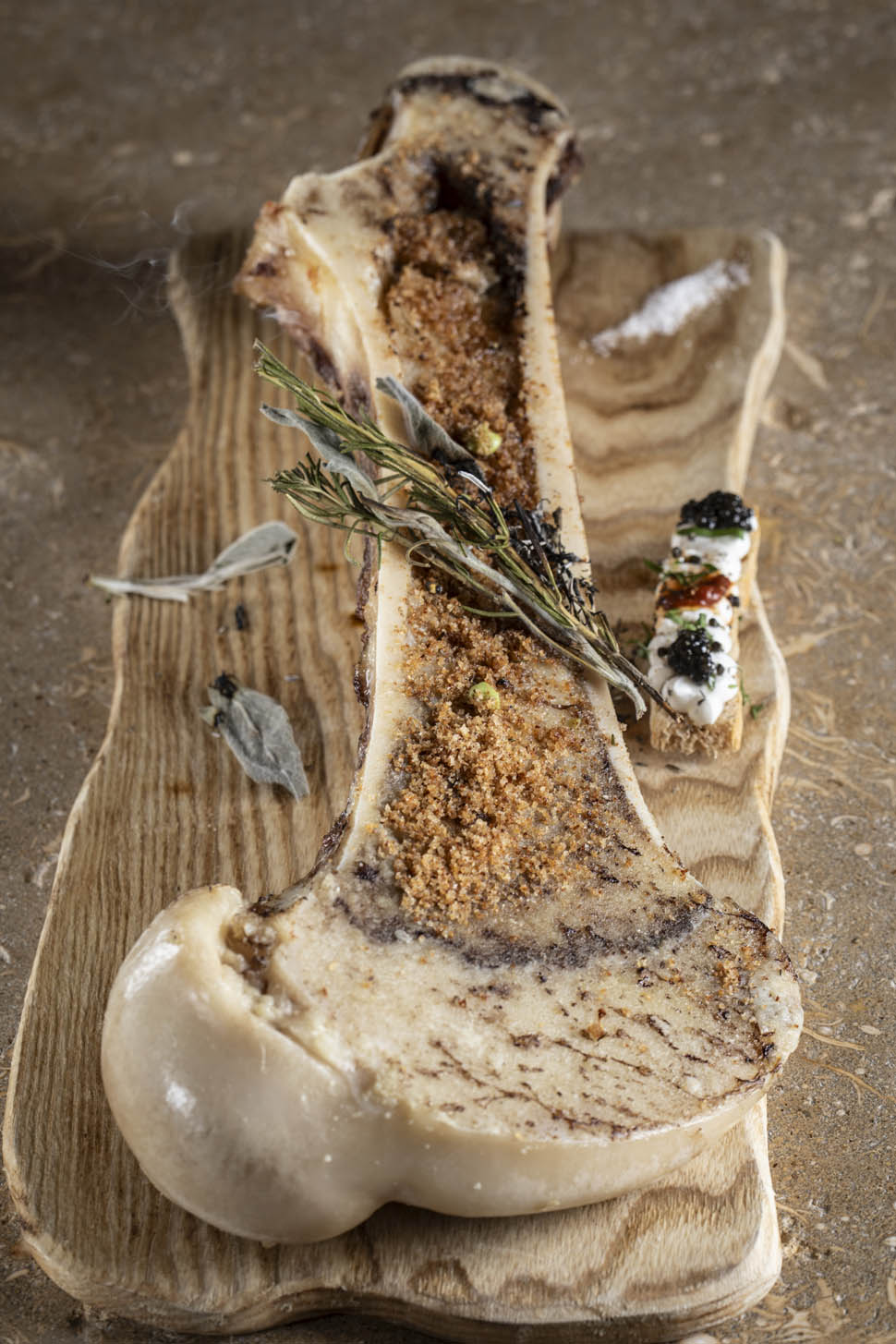
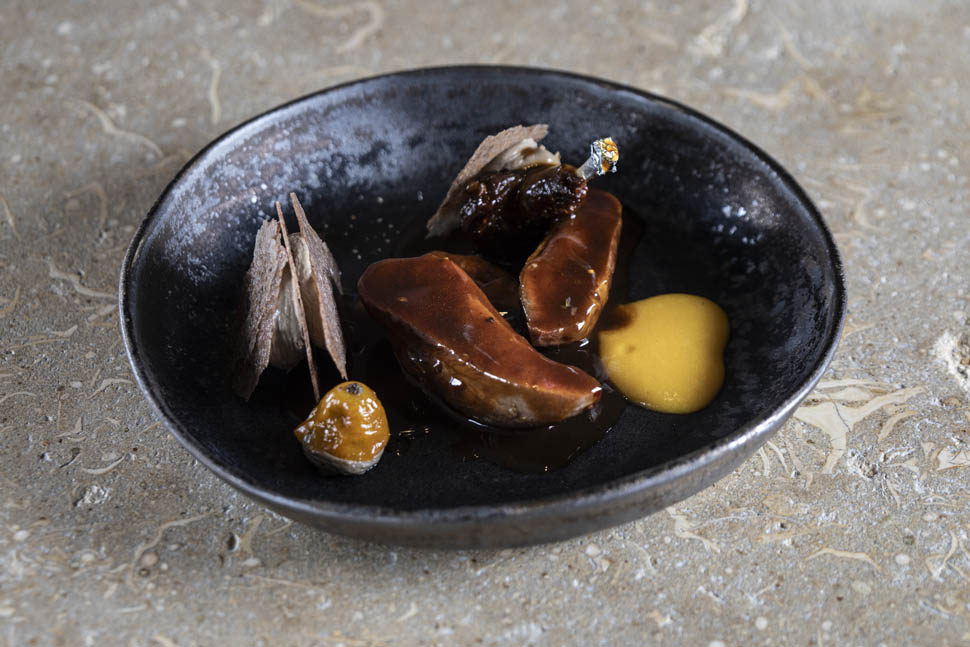
The meal concludes and comes together with the aid of a laminated notebook filled with scattered reflections on fragility, which introduces a chocolate dish themed around this concept. The organoleptic study of the 12 elements is intense. The chef remarks on the complexity of creating harmony through "verticality" in flavor layering, noting that reversing the order of elements can significantly alter the taste experience. For instance, a dry element followed by one that moistens the mouth can create a virtuous cycle of flavor and desire. This culinary play involves a careful balance of scents and creaminess, aimed at maintaining a clean and pure gustatory perception.
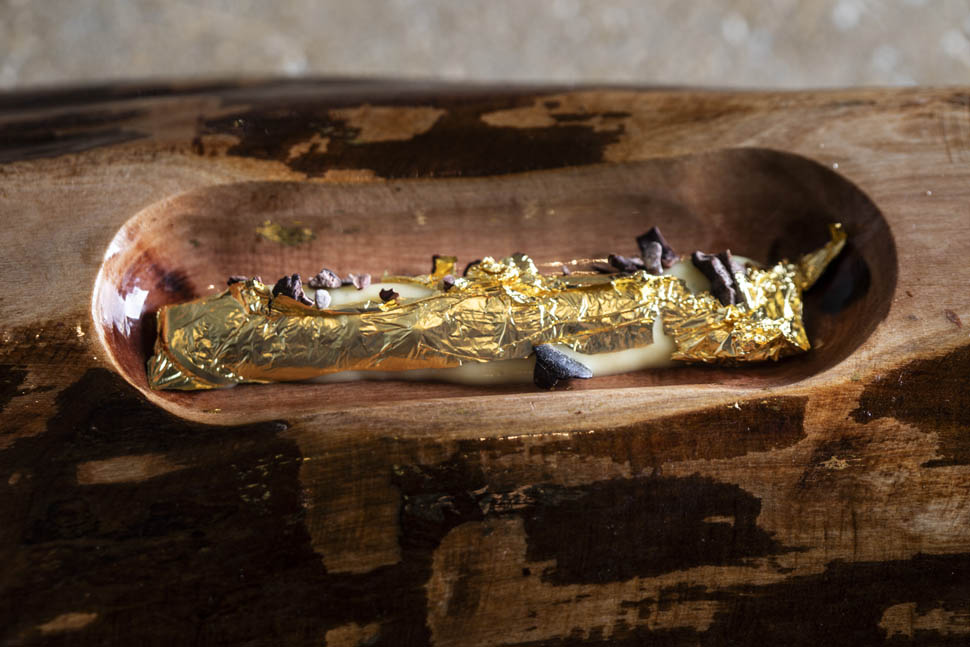
The dish "Bob spoon" is ingeniously revisited in this course, featuring a dual-chambered glass that alternates between extremely hot and cold sensations, balancing sweetness with bitterness. As the meal progresses through various textures of crunchiness—now seen as a direct representation of emotional fragility—we are led to the dessert named "Fede." This dish features a deeply aromatic white cream hidden beneath its surface, suggesting invisible depths. It embodies the concept of faith itself: seeing vulnerability as a strength in a nearly paradoxical way, as a result of inner exploration.
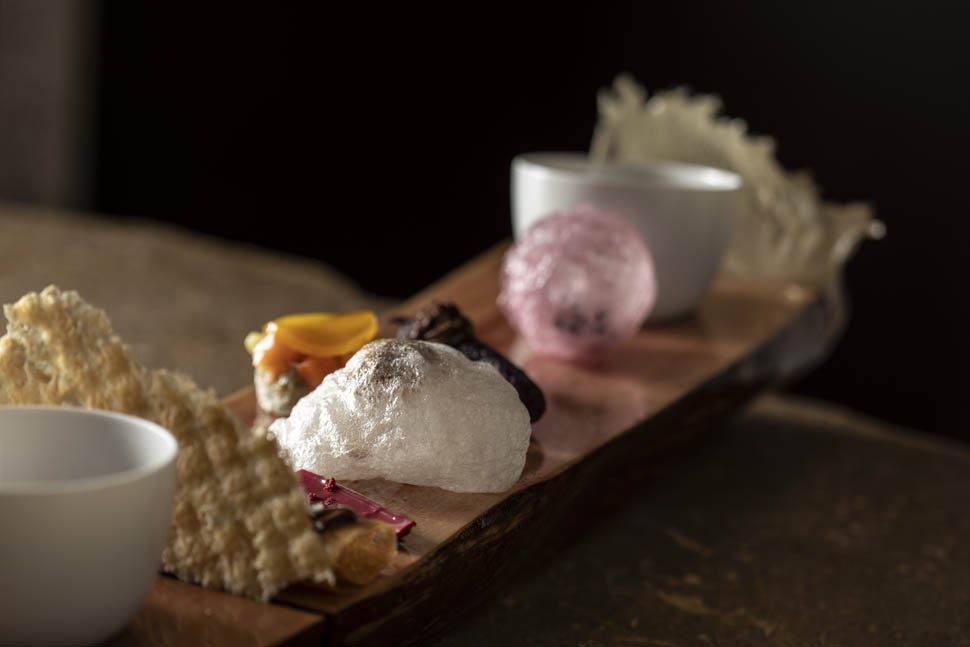
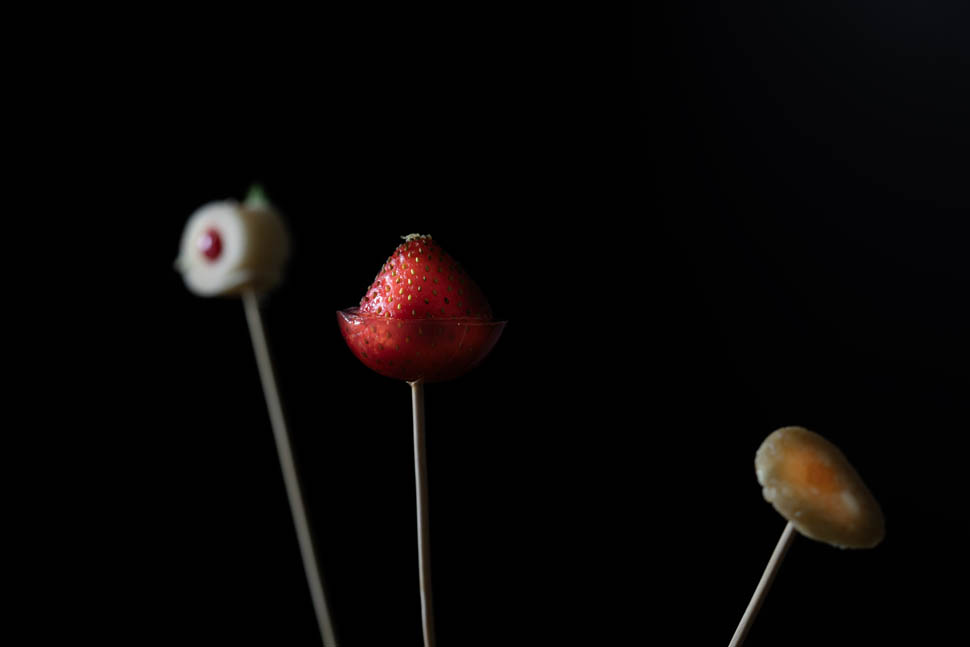
Contacts
Le Calandre
Via Liguria, 1, 35030 Rubano PD
Telefono: +39 049 630303
